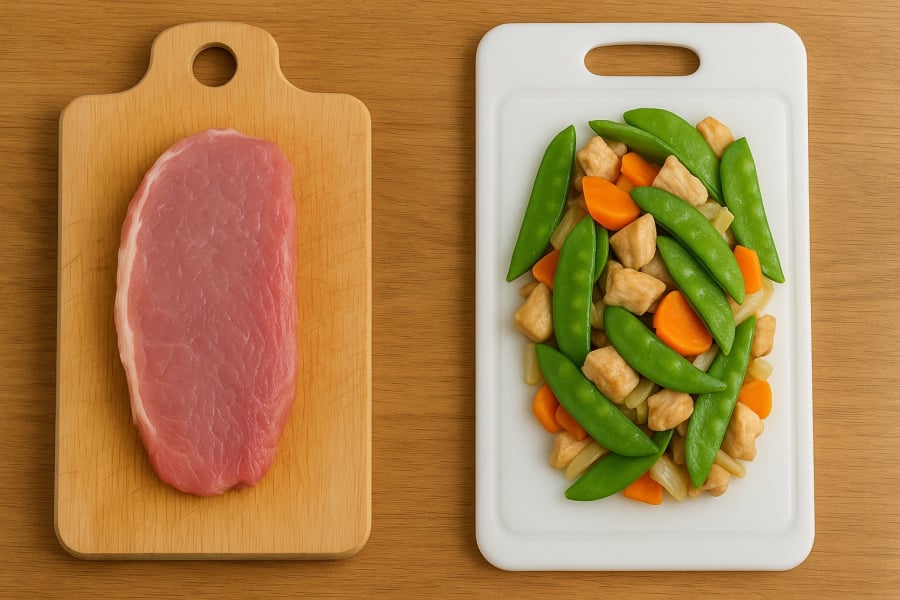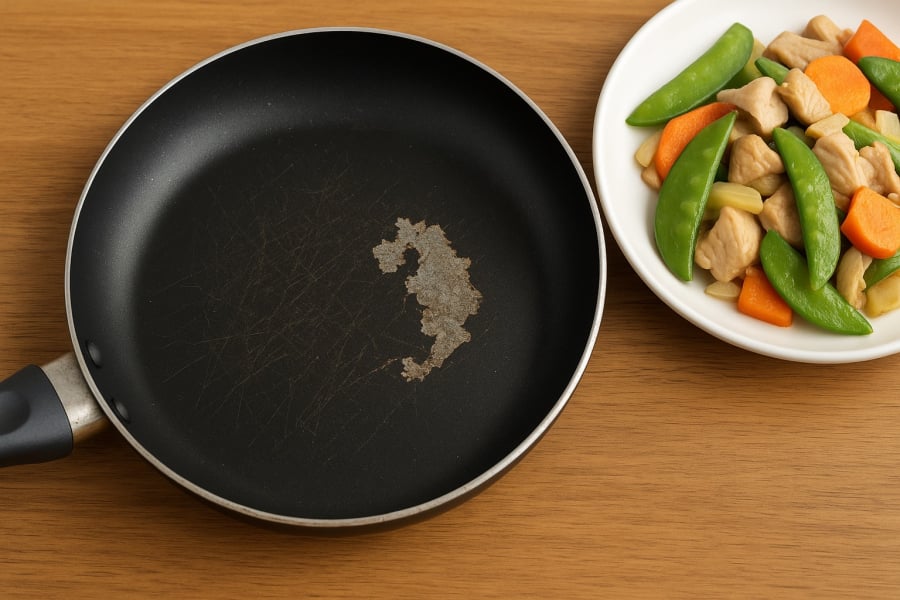## Bad Cooking Habits to Break Now
Stop Reusing Cooking Oil to Save Money
It’s tempting to reuse cooking oil to save a few bucks, but this practice can be harmful to your health. Oil that has been used for frying, especially at high temperatures, generates harmful oxidized substances such as aldehydes and acrolein. These compounds can cause cell mutations and increase the risk of cancer if they accumulate in the body over time.
ThS.BS Truong Hong Son, from the Institute of Applied Medicine in Vietnam, warns, “Reusing oil for frying not only depletes its nutritional value but also produces toxins that can damage the liver and kidneys and increase the risk of chronic diseases.”
Tip: Minimize reusing oil. If you must, use it only once more for dishes that don’t require high temperatures, and always filter out the residue first.
Using the Same Cutting Board for Raw and Cooked Food
Using the same cutting board for raw meat, fish, and then vegetables is a common practice, often done to save time and effort in the kitchen. However, this is the fastest way to spread bacteria from raw food to cooked food, posing a potential risk of food poisoning.
According to the Food Safety Authority (Ministry of Health), using the same cutting board for raw and cooked food is the leading cause of cross-contamination in the kitchen.
Tip: Invest in at least two cutting boards: one for raw food and the other for cooked food or vegetables. Regularly clean your cutting boards with hot water and lemon salt to effectively disinfect them.

Cooking with Peeling Non-Stick Pans
It’s tempting to hold on to that old non-stick pan even when the coating starts to peel, but this is a health hazard. The damaged non-stick coating can release chemical compounds into your food during cooking, potentially disrupting your hormones and negatively impacting your health over time.
A study published in the journal Environmental Health Perspectives (USA) found that the compounds in old non-stick coatings can interfere with thyroid function if exposed to them over an extended period.
Tip: Don’t hesitate to replace your pots and pans when the non-stick coating shows signs of wear and tear. It’s an investment in your family’s health!

Overusing Salt, Sugar, and MSG
While seasoning is essential to making delicious meals, overdoing it with salt, sugar, and MSG can have negative health consequences. A diet high in salt can lead to high blood pressure and cardiovascular issues, while excessive sugar intake contributes to diabetes and obesity. Some people may also experience fatigue and headaches from consuming too much MSG.
The WHO recommends that adults consume no more than 5g of salt and 25g of free sugar per day.
Tip: Practice seasoning lightly and enhancing flavors with natural ingredients like onions, garlic, ginger, and pepper. This way, you add taste without compromising your health.
Leaving Cooked Food Out to Cool Before Refrigerating
Many people believe that food should be allowed to cool completely before being stored in the fridge to avoid damaging the appliance. However, leaving food out at room temperature for more than two hours (especially in temperatures above 30°C) creates an ideal environment for bacterial growth.
According to the National Institute of Nutrition, food should be refrigerated within two hours of cooking to prevent bacterial growth.
Tip: After cooking, portion the food into smaller containers, let it cool slightly, and then store it in the fridge. This makes it easier to reheat, and it’s safer for your health.
Using a Fan While Cooking to Stay Cool
It’s understandable to want to turn on a fan while cooking to stay comfortable in a hot kitchen. However, the fan can blow oil, dust, and smoke around the kitchen, causing it to settle on your food. This is not only unhygienic but can also affect the quality of your meals.
Tip: Instead of using a fan, open a window or use a range hood or exhaust fan to keep the kitchen well-ventilated without blowing contaminants onto your food.

































